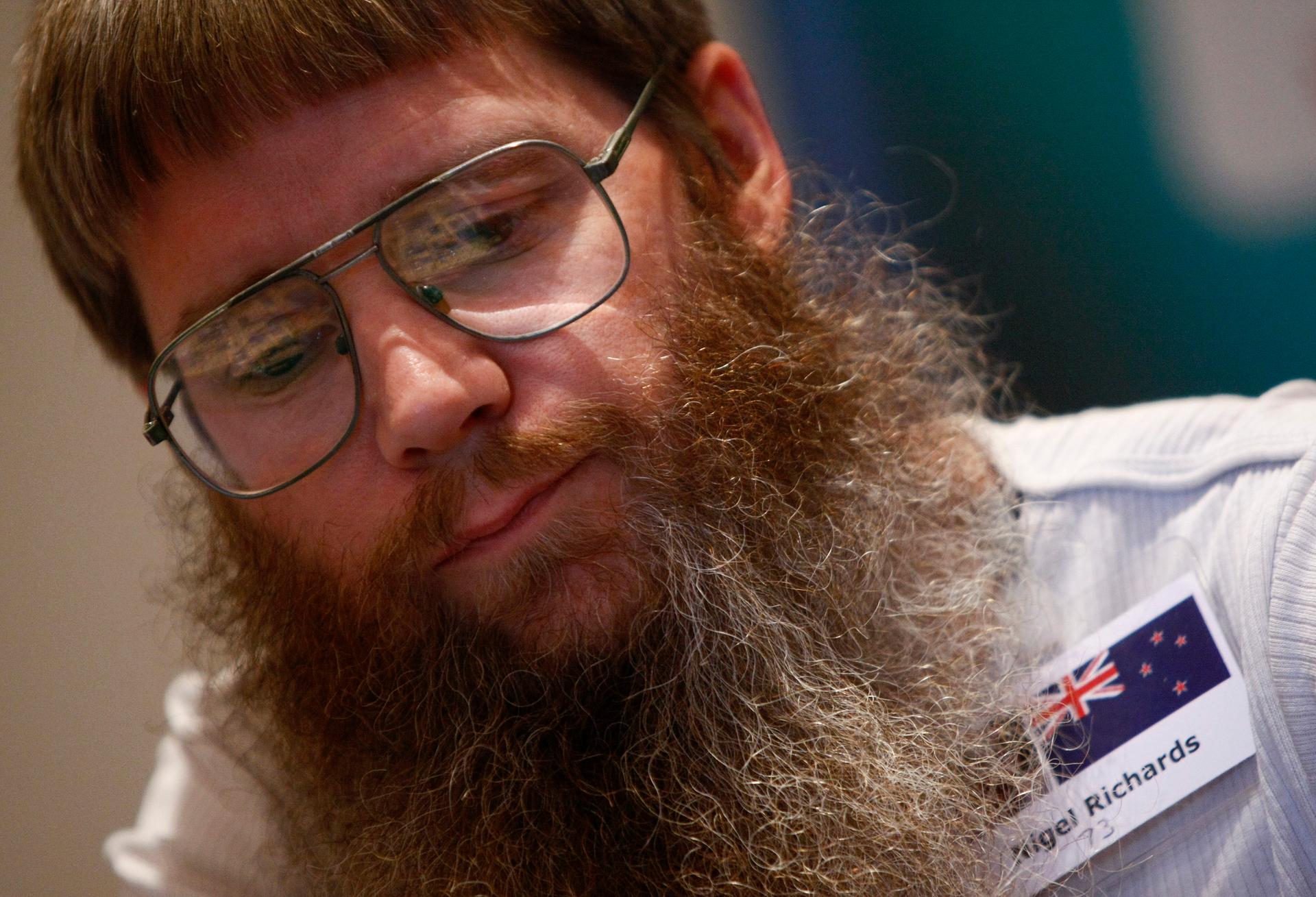Nigel Richards of New Zealand plays scrabble at the 2011 World Scrabble Championship in Warsaw
Nigel Richards has been winning Scrabble championships for decades. He’s been lauded as the best Scrabble player on Earth. And now he’s won another championship — in a language he doesn’t speak.
Richards became World Champion of Francophone Scrabble on Monday when he defeated his Gabonese rival, Schélick Ilagou Rekawe, during the final in Louvain, Belgium. He began preparing for the tournament just three months ago.
Stefan Fatsis, journalist and author of Word Freak: Heartbreak, Triumph, Genius and Obsession in the World of Competitive Scrabble Players, has profiled the Scrabble star in the past. “He’s perceived as a reclusive figure in Scrabble,” he says. “He approaches the game in a very very different way than most players.”
Fatsis wrote about the “enigmatic” Scrabble champion in a 2009 article: “Nigel is the first Scrabble player I’ve met who truly doesn’t seem bothered by the outcome of a game, who is interested only in the process, the intellectual challenge posed by the seven letters on a rack.”
The journalist was able to speak with Richards, despite his customary unwillingness to talk: “He doesn’t give interviews. No matter how many championships he wins — and he’s won five in North America and three world championships — he just doesn’t like to talk to the press.” To Fatsis, what really distinguishes Richards from other players is “this inexplicable mental acuity, the ability to ingest and memorize hundreds of thousands of words in English, and now in French.”
The Scrabble virtuoso follows a certain routine in preparation for his competitions. “He would go on these long, long bike rides, and he would bring up in his brain an image of the page he wanted to review … this is the sort of person that can say, ‘Oh yes, I learned that word, it was on page 832 of that dictionary,’" Fatsis recalled.
When Fatsis interviewed Richards at the 1999 World Scrabble Championship in Melbourne, he asked whether the player had a photographic memory. “I think there are about 28,000 definitions of a photographic memory,” Richards answered. “I can recall images very easily, but I can’t put the image in a context. I can remember a picture, but I can’t remember where I’ve seen it. I just have to view the word. As long as I’ve seen the word, I can bring it back. But if I’ve only heard it or spoken it, I can’t do it at all."
So did Richards learn any French through his memorization of the entire dictionary? Probably not. “I don’t know how Nigel learned the words,” Fatsis said. “My hunch is that he looked at the words sans definitions and just memorized the letter strings.” Therefore, despite knowing every single world in the French language, Richards is unaware of their meaning.
This is not the first time a non-native speaker won a Scrabble tournament in a foreign language: The game only requires vocabulary and strategy knowledge, not definitions or pronunciation. “There have been great Thai Scrabble players who barely speak English … so it is not a function of your native speaking ability, it’s a function of being able to process the order in which the letters appear in a particular word.”
And the reason Richards decided to take on this monumental challenge? According to Fatsis, it was ennui. “My hunch is that he sort of has gotten bored with the 260,000 words in the international English-language Scrabble dictionary, or the 190,000 words in the North American English-language Scrabble dictionary, and wanted a new challenge.”
